Suzuki has finally unveiled its first electric car, the eVitara, becoming one of the last major car makers to enter the EV market.
Previewed by the striking eVX concept in 2023, the production model is a blockier representation of that car and comes paired with a name that is familiar to drivers across the European markets – a move intended to win over buyers.
At 4275mm long, 1800mm wide and 1636mm tall, it is slightly bigger than its unrelated combustion namesake, which positions it as a rival to models such as the Mini Aceman and Volvo EX40.
It sits on the new Heartect-e architecture, which has been adapted from the scalable platform that underpins a range of Suzuki models, including the Swift hatchback.
The Japanese brand says the platform has been designed to maximise interior space (a key issue with EVs due to underfloor batteries) and claims it will offer more than competitors. To that end, it has a packaging-friendly wheelbase of 2700mm.
Suzuki will bring the five-seat eVitara to Europe with a choice of two batteries: a relatively small 49kWh and larger 61kWh. Official range figures have not yet been disclosed, but Suzuki said it is targeting 250 miles from the bigger pack. It can charge at speeds of up to 150kW.
Power comes from a front-mounted motor that is offered with 142bhp on the smaller-battery model and 172bhp with the larger pack. Both options put out the same 140lb ft of torque.
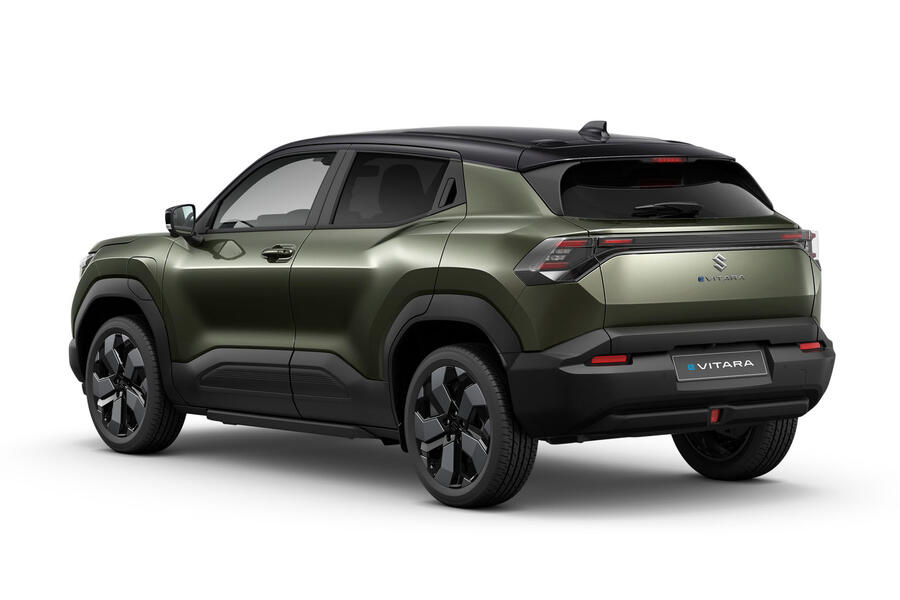
The eVitara can also be had with four-wheel drive (with the 61kWh battery only), courtesy of an additional, 64bhp motor on the rear axle. This also boosts torque to 221lb ft.
In this setup, the eVitara also comes equipped with Allgrip-e, a system which manages the two motors independently for offroad use allowing for “precise control”. As part of that, Trail Mode can be activated – basically a trick limited-slip differential – for better response.

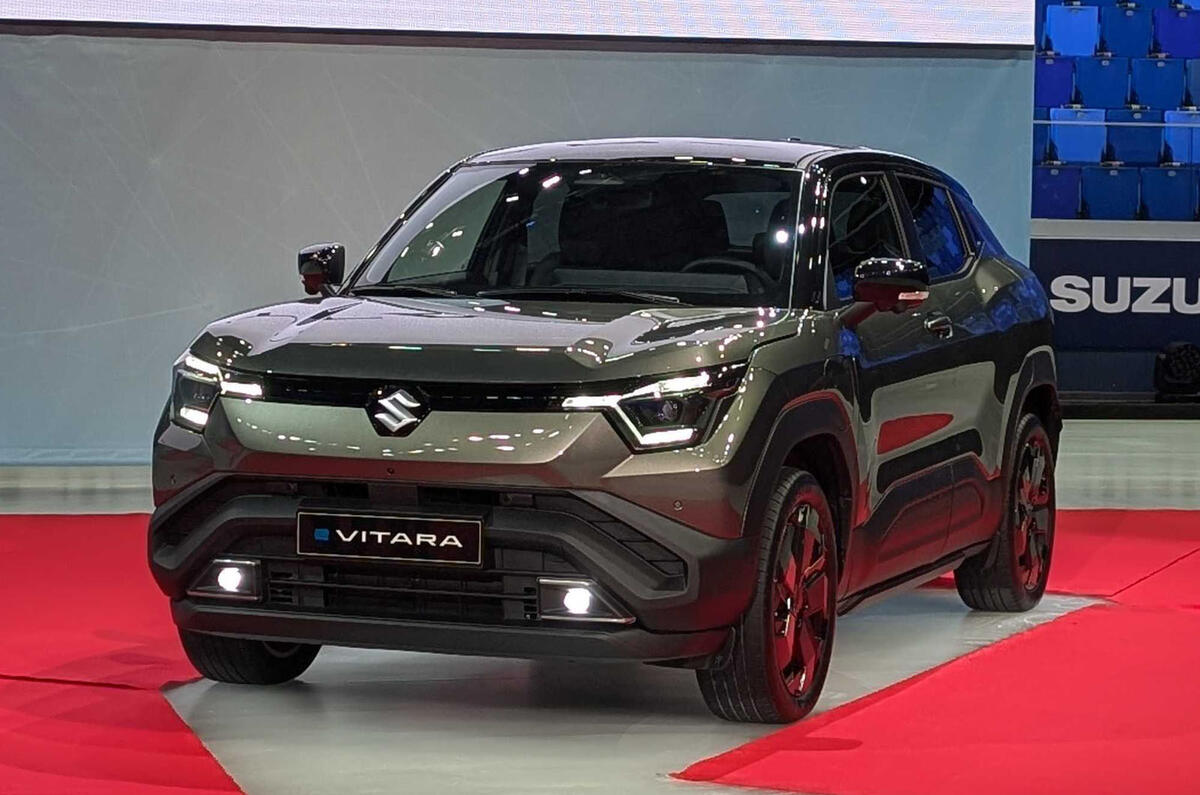
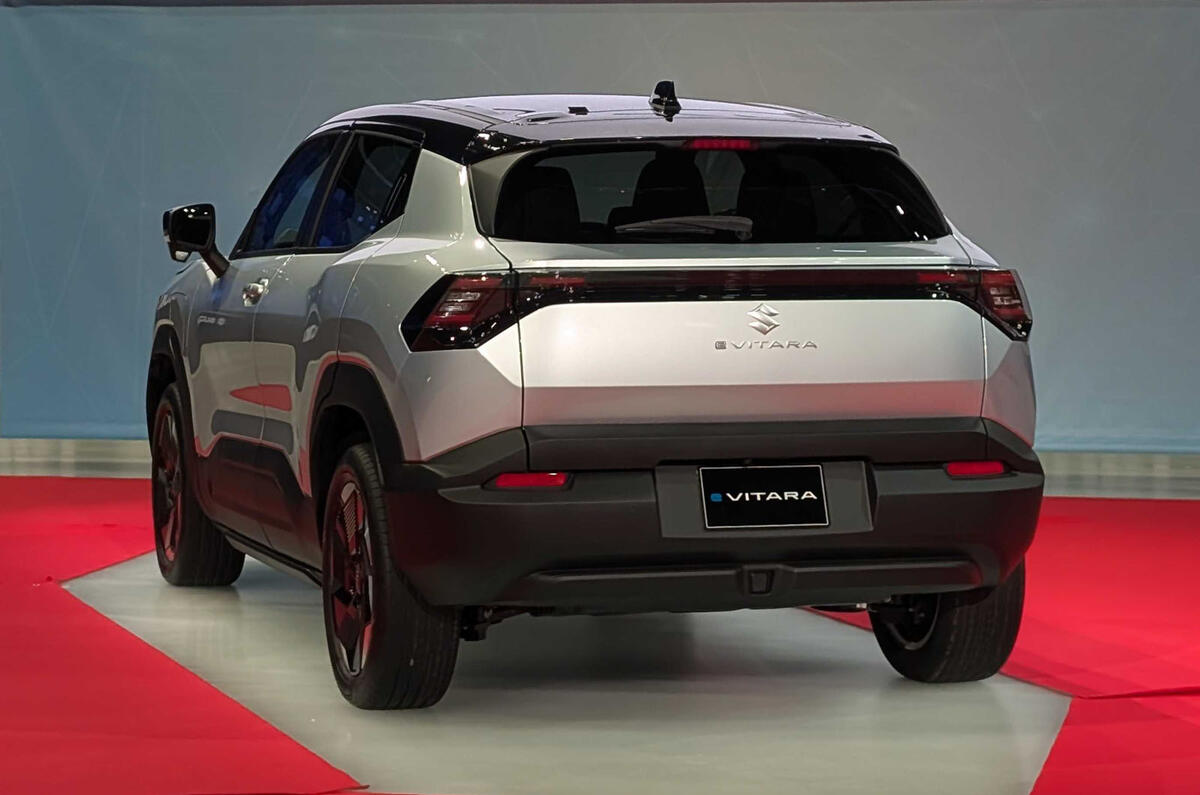
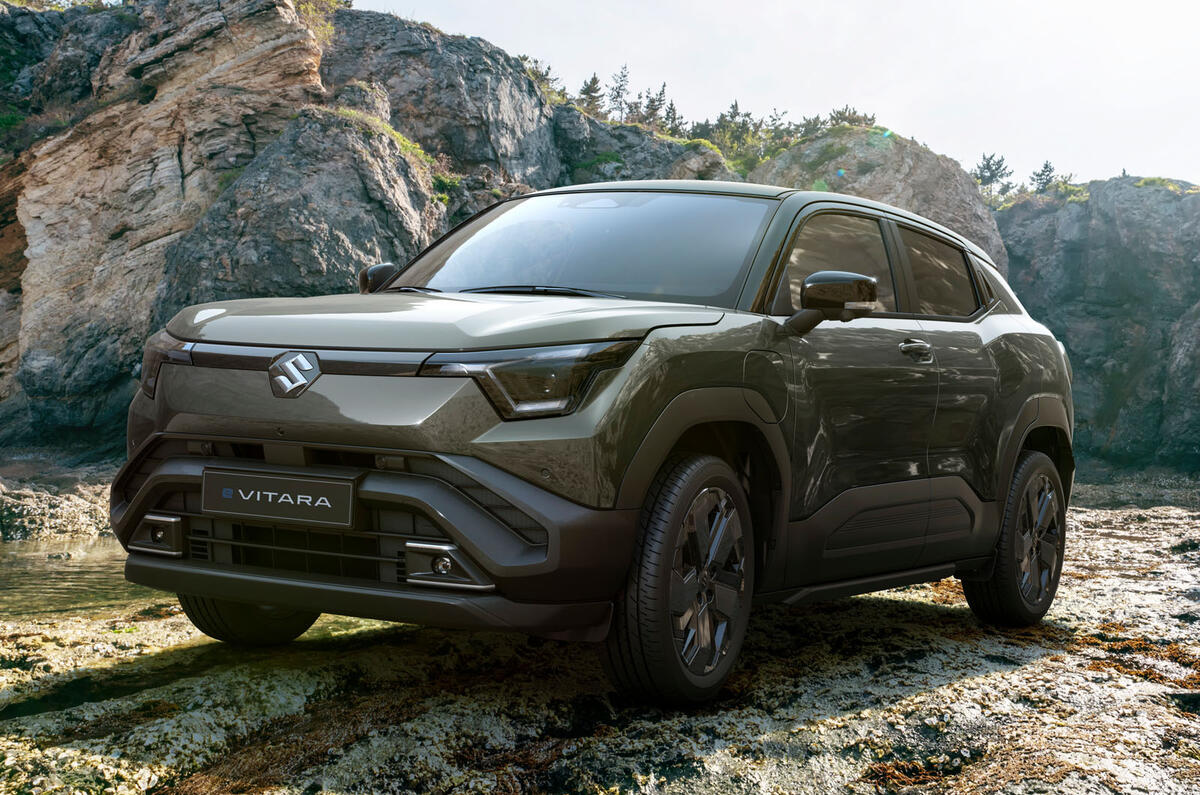

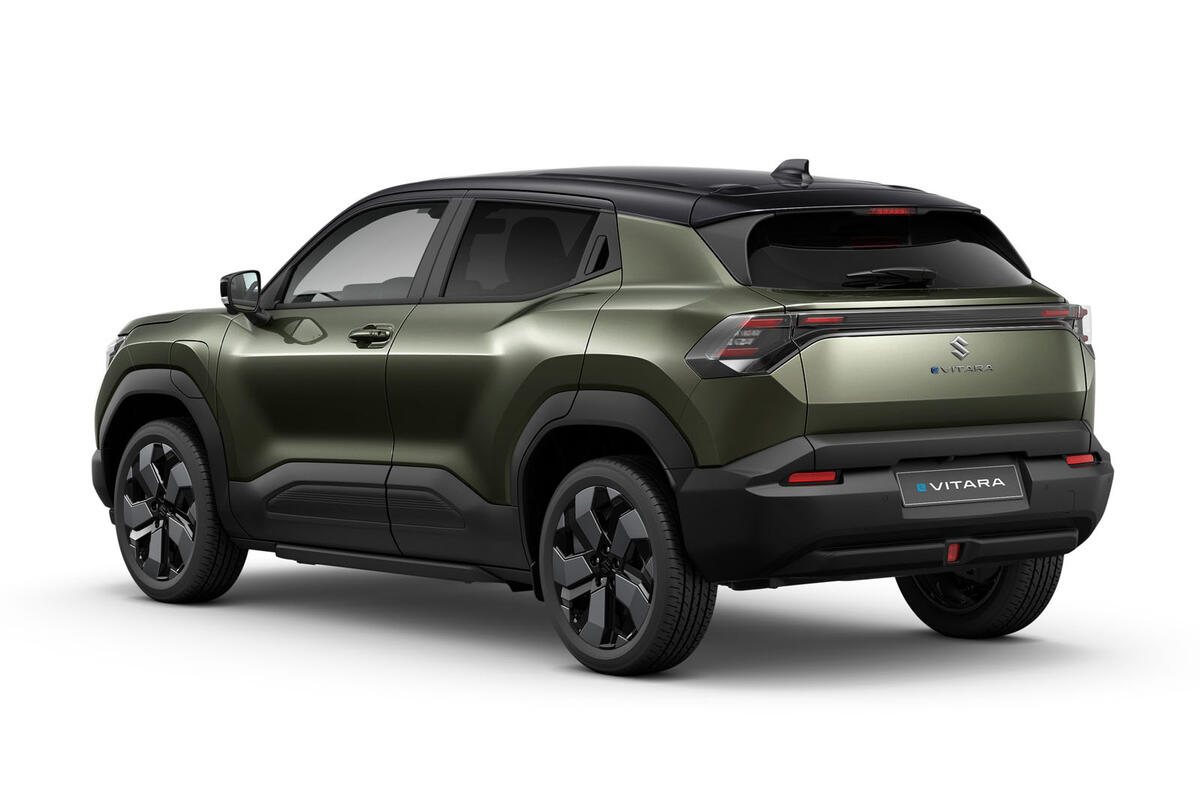
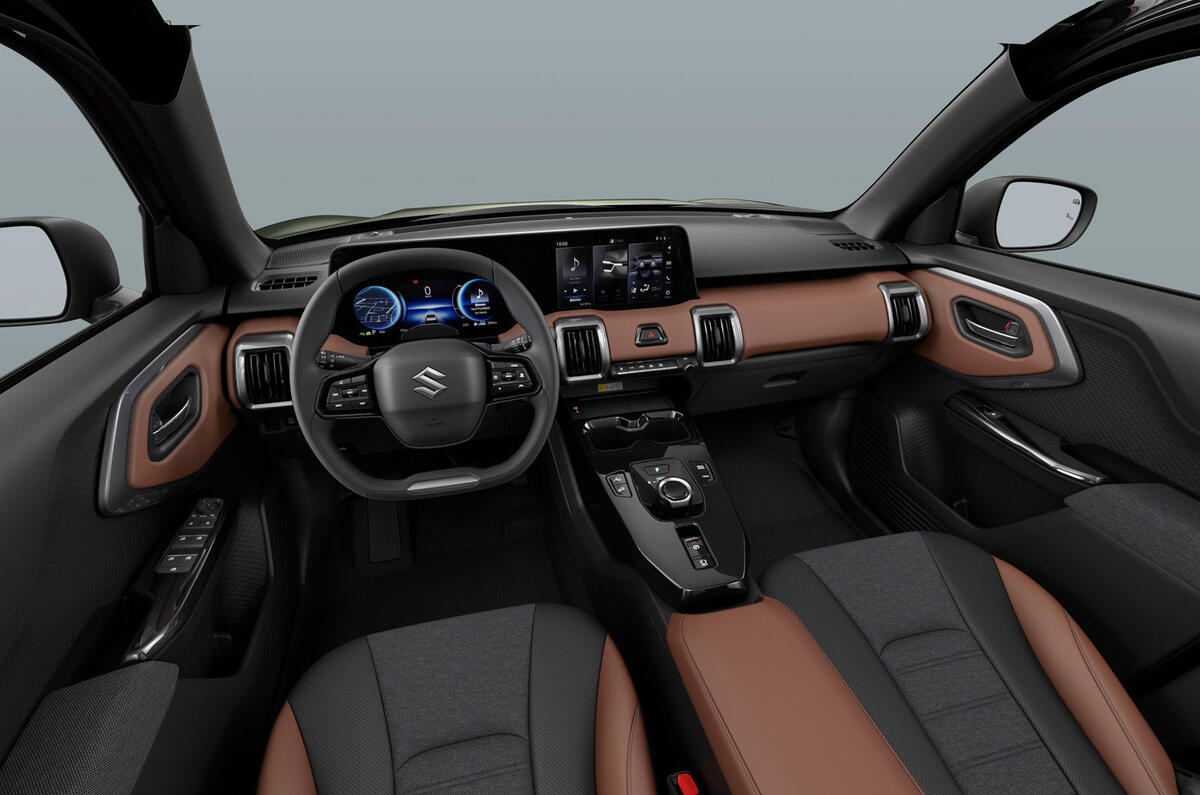















Join the debate
Add your comment
Just look at that transmission tunnel, using the cheaper to develop rejigged ICE platforms will be full of compromises. Either go big or go home.
Laughing my fucking arse off!!!
You really are a peanut.
It's a pity that Suzuki has spoilt the Vitara name by adding an "e" to it. I say this as a happy owner of a petrol Allgrip.
No comment on appearance other than the fact that it's another me too SUV that many of us don't want. But if this Suzuki can achieve 250 miles from its 49kWh battery, then it must certainly be very efficient. I am constantly surprised by the number of EVs big and small which claim around 4 miles per kWh. Surely given the disparate size, weight and aerodynamics there should be more varyation? Right now it seems that large expensive EVs are relatively efficient, while the smaller cheaper ones don't do so well. (Even the relatively small, lightweight Dacia Spring "only" achieves around 5 miles per kWh on the WLTP test cycle).